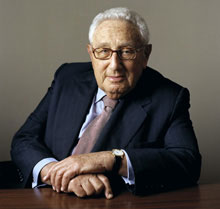 |
 |
Bhakta David Nollmeyer
Universal Jurisdiction
The case for Universal Jurisdiction is not a new argument. The philosophical beginnings of jurisdiction are moral obligation. If a person commits a crime in one location is such moral for this party to have impunity based on location, time, or person to person? Should an individual who commits a crime against a standing code be permitted to flee or remain immune from prosecution? In brief the issue lies with domestic and international law. To be de jure the complaint must be issued by a competent legal authority to such. This predicates that there must be a consistent level of primary and secondary law to guarantee uniformity of right and process.
To date there is a theoretical basis and standing treaty obligations to facilitate a real treatment of this issue although with considerable dissent. International treaties developed to facilitate Universal Jurisdiction are:
Universal Declaration of Human Rights 1948
International Covenant on Economic, Social and Cultural Rights 1966
International Covenant on Civil and Political Rights 1966
Optional Protocol to the International Covenant on Civil and Political Rights
Convention against Torture and other Degrading Treatment 1984
The cited instruments are positive law documents intended to level treatment to a minimum norm that will be help all the ratifying parties. Its intention is for universal or complete adherence.
The Princeton Principles on Universal Jurisdiction (2001) address some theoretical concepts on this subject of which some points follow:
Principle 1. Fundamentals of Universal Jurisdiction
1. For purposes of these Principles, universal jurisdiction is criminal jurisdiction based solely on the nature of the crime, without regard to where the crime was committed, the nationality of the alleged or convicted perpetrator, the nationality of the victim, or any other connection to the state exercising such jurisdiction.
Principle 2. Serious Crimes Under International Law
1. For purposes of these Principles, serious crimes under international law include: (1) piracy; (2) slavery; (3) war crimes; (4) crimes against peace; (5) crimes against humanity; (6) genocide; and (7) torture.
Principle 9. Non Bis In Idem Double Jeopardy
1. In the exercise of universal jurisdiction, a state or it's judicial organs shall ensure that a person who is subject to criminal proceedings shall not be exposed to multiple prosecutions or punishment for the same criminal conduct where the prior criminal proceedings or other accountability proceedings have been conducted in good faith and in accordance with international norms and standards. Sham prosecutions or derisory punishment resulting from a conviction or other accountability proceedings shall not be recognized as falling within the scope of this Principle.
Henry Kissinger has written a refutation of the current equilibrium of the case for Universal Jurisdiction. Kissinger states the first approach applies domestic court procedures to violations at the international level. The second mechanism is through the International Criminal Court (ICC) Kissinger 2001). Kissinger argues that the trajectory of United Nations Conventions does not support Universal Jurisdiction. His focal point is the case ex parte: Pinochet.
His argument elaborates a common ground concept with universalists that heinous acts should be prosecuted. This consolidation of law and instinct to punish must however be connected to a democratic political structure, a system of checks and balances, and other elements conducive to the survival of democracy.
Kissinger further argues that a "dangerous precedent" is set by the interpretation of political history that is not favorable to one's own in this case the European Left. His position is best left to his own words (Kissinger 2001):
The unprecedented and sweeping interpretation of international law in ex parte: Pinochet would arm any magistrate anywhere in the world with the power to demand extradition, substituting the magistrate's own judgment for the reconciliation procedures of even incontestably democratic societies where alleged violations of human rights may have occurred. It would also subject the accused to the criminal procedures of the magistrate's country, with a legal system that may be unfamiliar to the defendant and that would force the defendant to bring evidence and witnesses from long distances.
Kissinger refutes the International Criminal Court as "an indiscriminate court." Prosecutional discretion without any accountability is a serious flaw. The owed guarantees available in the United States will not equate to domestic considerations of due process (Kissinger 2001).
As the U.S. experience with the special prosecutors investigating the executive branch shows, such a procedure is likely to develop it's own momentum without time limits and can turn into an instrument of political warfare. And the extraordinary attempt of the ICC to assert jurisdiction over Americans even in the absence of U.S. accession to the treaty has already triggered legislation in Congress to resist it.
Kissinger concludes his refusal on the Pitfalls of Universal Jurisdiction by stating three modest proposals. He cites that international tribunals established to deal with the enormity of crimes where the local judicial system is not competent as in Yugoslavia and Rwanda that punishment occurs without removing political judgment and experience. In a future state it would be possible to renegotiate the ICC statute (Kissinger 2001).
1. The U.N. Security Council should create a Human Rights Commission or a special subcommittee to report whenever systematic human rights violations seem to warrant judicial action.
2. The Security Council would set up an ad hoc international tribunal on the model of those of the former Yugoslavia or Rwanda when the government under which the alleged crime occurred is not authentically representative or where the domestic judicial system is incapable of sitting in judgment on the crime.
3. The Security Council would define procedures for these international tribunals. The scope of the prosecution should be precisely defined by, and the accused should be entitled to the due process safeguards accorded in common jurisdictions.
Henry Kissinger has presented his refutation to the current status of Universal Jurisdiction in degree based on the particular interests of the one state he has the most direct experience, hence the United States. Since 2001 events reflecting this country and world as Darfur and the Iraqi War have developed under the realities of concretism to bring to a court of justice the agents of belligerent acts of abuse. Kissinger's arguments on some issues have merit. The weakest however is the use of political history in the Pinochet case. The United States involvement in Chilean issues is not a good cornerstone to avoid bringing to the courts the disappearances of 3,000 persons. To date in June of 2005 confessions of key personnel in the Pinochet regime have confirmed that persons were pushed out of planes over the Pacific Ocean. Pinochet who is in failing health has been stripped of immunity.
Kenneth Roth is Executive Director of Human Rights Watch and has directly rebutted Kissinger's paper. Roth's position emphasis is that Tyrants commit atrocities as genocide to calculate creating a culture of impunity of which domestic courts uphold. Roth states that international courts are emerging from this pattern (Roth 2001).
Roth rebuts Kissinger with mostly abstraction and follows with particular instances (Roth 2001):
In The Pitfalls of Universal Jurisdiction (July August 2001), former Secretary of State Henry Kissinger catalogues a list of grievances against the juridical concept that people who commit the most severe human rights crimes can be tried wherever they are found. But his objections are misplaced, and the alternative he proposes is little better than a return to impunity.
Both debaters argue only modern positive documents regarding Universal Jurisdiction. Kissinger posits that he does not believe that the signatories of early treaties as the Geneva Conventions of 1949 require each participating state to "search for" persons who have committed grave breaches of the conventions and to "bring such persons, regardless of nationality, before it's own courts" (Roth 2001).
Roth cites that Kissinger bases his critique on two points: the soon to be formed International Criminal Court and the exercise of Universal Jurisdiction by national courts. Kissinger's claim that the ICC treaty are "vague" and "susceptible to political application." Roth counters that the ICC's definition of war crimes resembles the Pentagon's and is derived from the Genocide Convention of 1948 ratified by 131 countries and the United States.
A position also set forth by Kissinger is that membership of international courts composition is arbitrary and subjects American's to due process violations. Roth concurs in part stating that any court's regard for dupe process is only as "good as the quality and temperament of it's judges" (Roth 2001).
Roth states that any fear of the ICC violating the U.S. Constitution is unlikely, The Rome treaty "deprives the ICC of jurisdiction if, after the court gives required notice of it's intention to examine a suspect, the suspect's government conducts it's own good faith investigation and, if appropriate, prosecution." Roth further states that recently national courts have exercised universal jurisdiction against Bosnian war criminals, Rwandan genocidaires, Argentine torturers, and Chad's former dictator. This was not based on any grounds of ideology (Roth 2001).
One of Kissinger's strongest objections is that universal jurisdiction subjects Americans to a foreign court. Roth states: "As a nation committed to human rights and the rule of law, the United States should be embracing an international system of justice, even if it means that Americans, like everyone else, might sometimes be scrutinized."
Summary
Sound laws begin with sound moral principles. In this light the universality of crimes against humanity should also be embraced by the community of nations to bring belligerents to justice. Nationalism and ideology do not provide a support based on realism for non performance of compromises under international law. Treaties are signed, ascended, and then ratified by member countries. Membership in the Universal System permits the United Nations to communicate with the party states.
The cited treaties reflect the Princeton Principles in degree. Mr. Kissinger brings a wealth of real world experience to this discussion. Mr. Roth is a leader in the second largest human rights group Human Rights Watch. I believe in degree Kissinger's case lies in the power control argument. The beautiful abstraction turns into a human battering ram. Roth concurs that competency of officials comprise the efficiency of any level of real justice performed by the court.
The United States is likely to peruse a course of pragmatism agreeing to international law where it's jurisdiction over nationals and particularly soldiers in the field are not directly affected. This latter condition is evident in the Bush administration agreeing to a seating of a court regarding recent events in Darfur, Sudan.
The thorny problem of Universal Jurisdiction will focalize as the world's only superpower, the United States is confronted by the concrete need to use international justice to maintain it's prestige and legitimacy in the international environment.
Works Cited
Kissinger, H. (2001). The Pitfalls of Universal Jurisdiction. Globalpolicy.org. Retrieved June 25, 2005 from: http://www.globalpolicy.org/intljustice/general/2001/07kiss.htm
Roth, K. (2001). The Case for Universal Jurisdiction. Globalpolicy.org. Retrieved June 25, 2005 from: http://www.globalpolicy.org/intljustice/general/2001/roth08.htm
University of Minnesota Human Rights Library (2001). The Princeton Principles on Universal Jurisdiction 28 (2001). Retrieved June 25, 2005 from the World Wide Web: http://www1.umn.edu/humanrts/instree/princeton.html